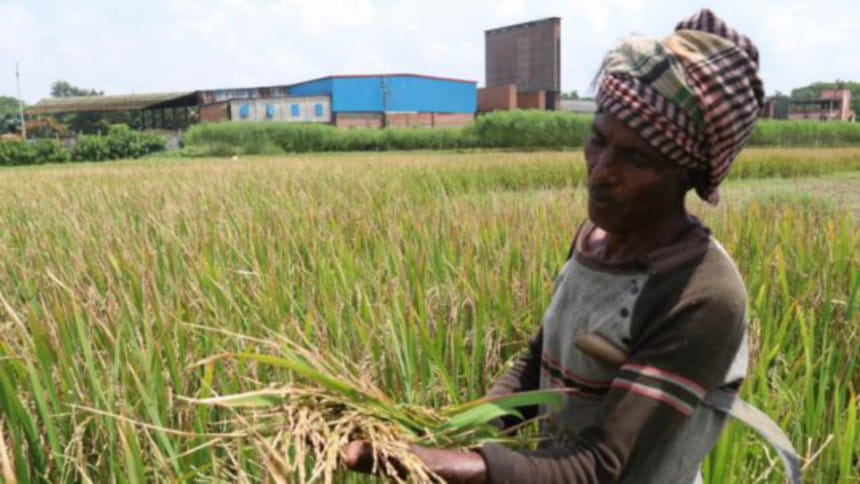Crack down on kilns near farmlands and habitation

In a report published in this newspaper on Wednesday, we reported how toxic gas emitted from a brick kiln in Faridpur Sadar upazila is damaging ripe paddy on nearly 10 acres of land. The emissions from the kiln, which started operation in 2017, have burned paddy fields and reduced the yield of paddy according to locals. Yet, despite complaints from farmers to the DC and the environment department, little has been done, and the owner of the kiln has been able to continue with its operation.
Furthermore, according to the Faridpur environment department's own admission, no environment certificate has been given to the kiln. Why is the kiln in operation despite the DC's assurances to the farmers that steps would be taken, and the environment department saying that the district administration is free to do so? On what grounds is the general manager of the kiln claiming that no toxicity has been found in the area? We have in the past reported how the proliferation of illegal kilns in rural areas of Bangladesh is damaging the fertility of farmlands and polluting the environment. In most cases, owners are politically influential, and therefore free to continue. A common pattern that can be seen is the indifference of the authorities despite complaints from locals.
In this particular case, we cannot say for certain if the inaction on the part of the administration has been one of negligence or of willingly turning a blind eye. In either case, the farmers whose crops are being damaged deserve reparation for their loss. The ill-effects on health and crops of these kilns set up near farmlands or villages are a serious concern and the authorities need to start treating them as such.

 For all latest news, follow The Daily Star's Google News channel.
For all latest news, follow The Daily Star's Google News channel. 



Comments